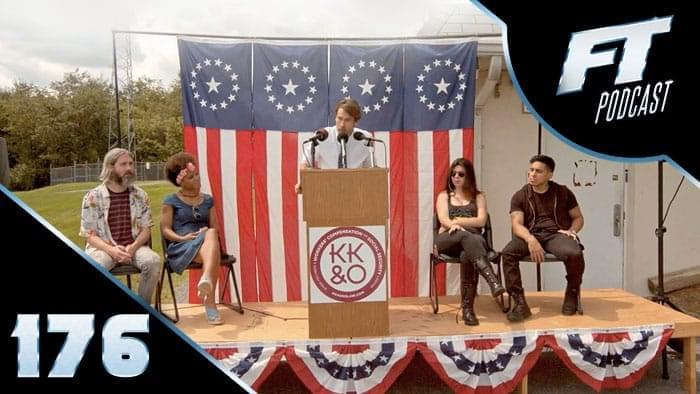
This 1938 oddity, Hollywood’s first and (to date) only all-midget musical Western, was resurrected from obscurity in the late 1970s thanks to the Medved Brothers’ books “The 50 Worst Films of All Time” and “The Golden Turkey Awards.” (Yes, there was a time when Michael Medved was more obsessed with bad movies than bad morals.) Due to that belated fame, the movie gained cult status among the so-bad-they’re-good-movie lovers.
To be honest, “The Terror of Tiny Town” is not a great movie. But in fairness, it’s not all that bad either. It’s just a typical low-budget Western with an atypical cast who averaged 3’8″ in height
The plot of “The Terror of Tiny Town” is strictly by-the-numbers Western: a villain (played by Little Billy – and, yes, he is quite little) provokes a feud between two rancher families. While the clans are fighting each other, the villain plots to steal both of their properties. But a white-hatted hero (Billy Curtis) rides in on his Shetland pony to halt the feud, route the villain, and woo the prettiest gal in town.
Amidst the commotion are the usual suspects in these quickie oaters: a comic relief cook, an sultry saloon singer, a Stepin Fetchit-type black servant, and plenty of cowboys who don’t seem to have any visible source of income yet have plenty of funds to spend ordering beers at the local watering hole. There’s also a penguin, although his presence here is never quite clear.
There is also a single full-sized person, an announcer who introduces the film and puts the cast in their diminutive perspective. But after the big guy leaves the screen, everything is pint-sized. Of course, the lack of perspective dilutes the intended comedy effect (since everyone is around the same size, the basic joke gets lost.)
Yet “The Terror of Tiny Town” is so patently weird and spirited that it actually becomes very funny (albeit in a perverse and politically incorrect way). The midget cast isn’t especially talented and a lot of the dialogue reading comes across as hilariously stilted (the fight sequences are priceless in their clumsiness – obviously stunt doubles were out of the question here). And Nita Krebs, as the Dietricheseque saloon singer, is so wildly over-the-top (or under-the-top, in her case), that her musical siren call is priceless in its warped eroticism.
This is a fun curio, to be certain. If anything, the old axiom “they don’t make ’em like this anymore” clearly applies here!

Is there a way to purchase this movie?